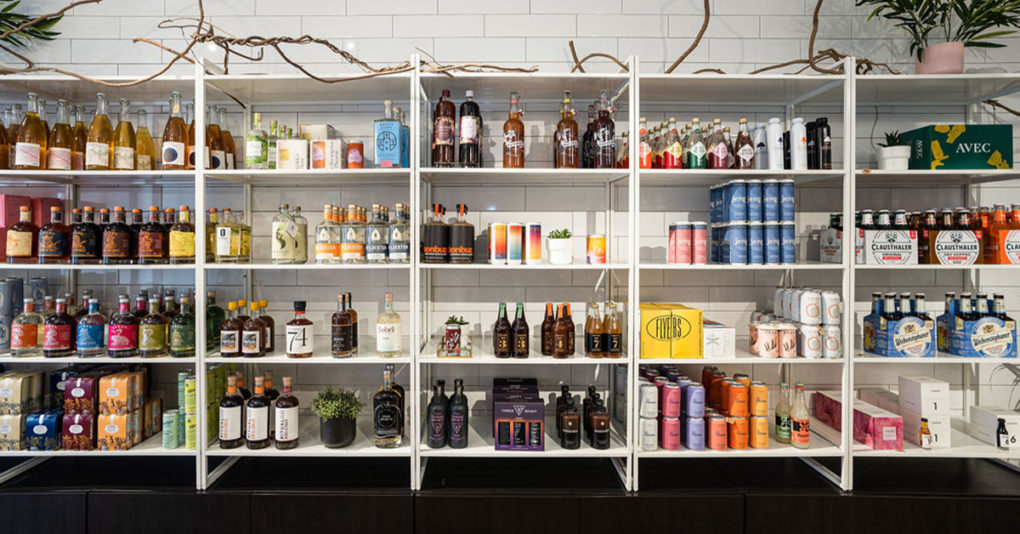
The announcement came via a letter to suppliers sent Friday morning from CEO Sheetal Aiyer, sharing that Boisson’s board of directors determined that “entering into a restructuring process for the company to shift its operational focus is in the best interests of its creditors and other stakeholders.”
After rumors surfaced last week that the company had laid off employees and a former employee confirmed that the company was shuttering retail outlets, the company offered no official statement on its future until now.
Today, Boisson filed in the U.S. Bankruptcy Court for Central California for a reorganization of its operations under Chapter 11, subchapter 5 of the U.S. bankruptcy code, a type of bankruptcy that went into effect in 2020 designed to allow small business owners to reorganize debt and develop a plan to pay off remaining debt, without ceasing operations.
According to court documents, in 2023 the company generated a combined revenue of $10 million from its retail and e-commerce operations, alongside more than $1 million in wholesale revenue and an additional $175,000 from Boisson-owned brands. But Boisson became unable to pay its debts as they came due “faced with escalating operational costs, particularly from retail operations at its current nine traditional brick-and-mortar locations, and a competitive landscape that strained its financial reserves.”
The company reported it has between 100 and 199 creditors, between $1,000,001 and $10 million in liabilities and $1,000,001 – $10 million in assets, according to the filing. As of the petition date, Boisson’s primary assets were approximately $80,000 in cash, inventory that can be sold for no less than $650,000, and approximately $400,000 in accounts receivable, which are expected to be collected in the ordinary course of business.
The bankruptcy filing lists Boisson’s 20 largest unsecured claims, and the company’s largest creditors, including several NA brands such as French Bloom, The Pathfinder, Almave, Three Spirit Drinks, as well as NA retailer The Zero Proof.
Aiyer wrote in the email to retail partners: “To be clear, we are not closing, and will continue to operate the e-commerce and wholesale channels as we go through this reorganization over the coming weeks.”
According to Aiyer, the hope is that Boisson will emerge from the Chapter 11 process much leaner, with a streamlined focus on e-commerce and distribution. He added that there are “no guarantees.”
Aiyer joined Boisson in September, coinciding with a $5 million funding round led by Convivialité Ventures, the VC arm of Pernod Ricard, and Connect Ventures. Aiyer’s appointment as CEO was part of the company’s long-term ambitions of becoming a three-pronged business: retailer, e-commerce site and distributor. After launching in NYC in 2021, Boisson expanded to nine storefronts and closed on a $12 million seed round, in addition to growing its e-commerce program and sharing plans to cement a national footprint for wholesale distribution.
But the email sheds light on the financial challenges facing Boisson: The company’s fixed costs given its retail footprint and bi-coastal operations have presented numerous issues, Aiyer wrote, coupled with a recent downturn in topline revenue growth. The business as it existed was no longer financially viable, he added.
“Since I came on as CEO in September, we made every effort to reduce variable costs as much as possible,” Aiyer wrote.
Those efforts included rebuilding a “team on the fly” that would have been able to “set up the business for sustainable and consistent growth” but ultimately those efforts were not enough to shed the company’s numerous fixed cost obligations without restructuring, Aiyer wrote.
Aiyer thanked suppliers, recognizing the impact on their business and said the company will reach out proactively to provide more updates as they become available. Many of those suppliers have been left scrambling for answers about the future of the retailer in the absence of any official statement, with some still awaiting news of the status of their inventory and payment owed.
Boisson founder Nicholas Bodkins shared the news on LinkedIn this morning, highlighting the company’s accomplishments and reiterating that Boisson’s “failure is not the NA category’s failure.” The post also asked for followers to inquire if they a have roles available for Boisson’s former employees or are “interested in what we built at Boisson and think it could be a good fit to integrate into your business.”